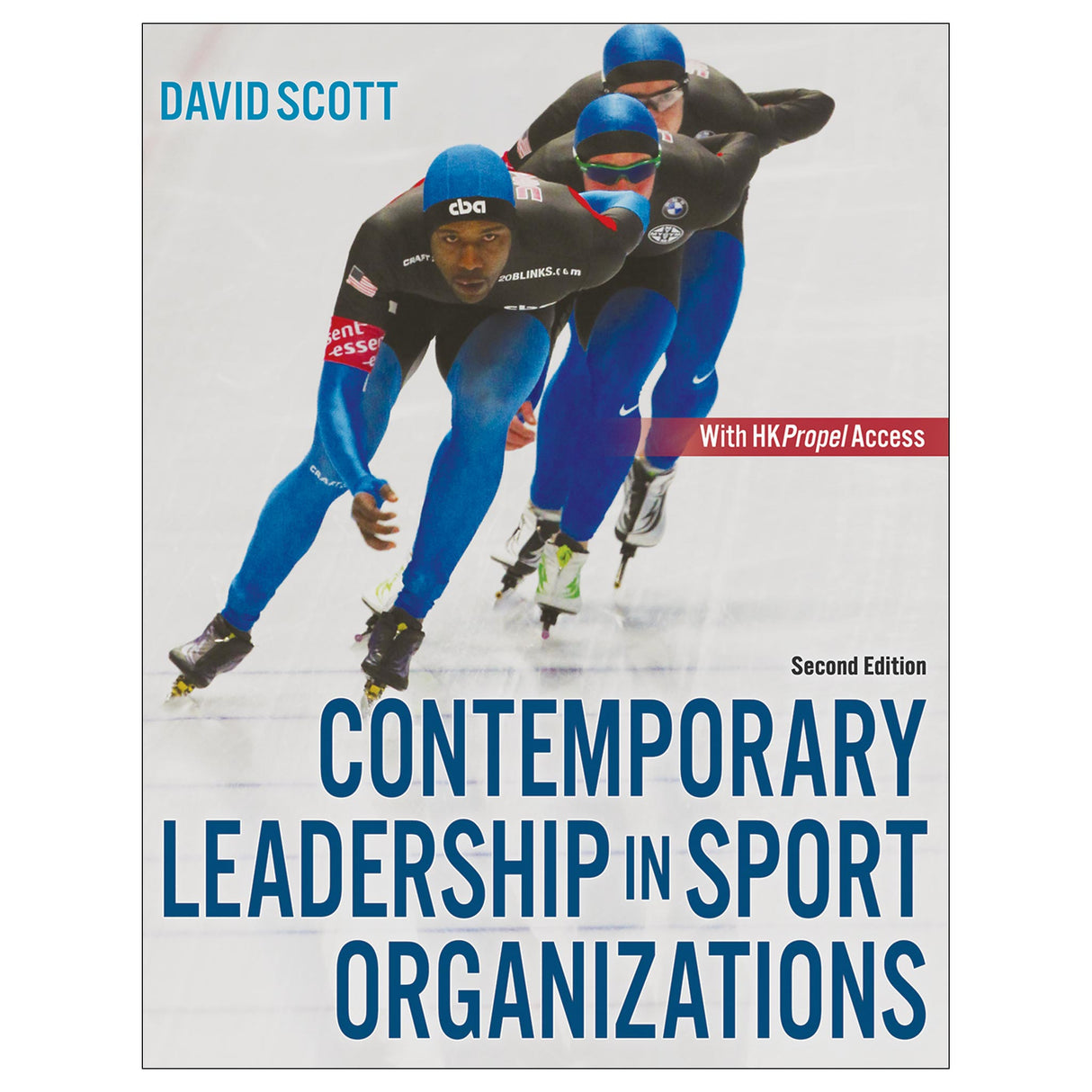Contemporary Leadership in Sport Organizations 2nd Edition Ebook With HKPropel Access
Author: David Scott
$111.95 CAD

Students will first learn the historical and foundational concepts of leadership, defining what effective leadership is and the primary outcomes of good leadership. Contemporary thought and leadership approaches for present-day challenges are then presented, bringing concepts to life within the unique contexts of sport organizations of all levels and types. Modern leadership concepts that are explored include emotional intelligence and its role in developing authentic leadership, data-informed decision making and problem solving, behaviors and actions that are most effective in crisis situations, and the leadership-as-practice movement.
Updates in this edition include the following:
- Expanded content on leadership for achieving diversity, equity, and inclusion in sport organizations, including new content on LGBTQ+ research in sport
- Content on global leadership in sport, including the emergence of esports and sport as a tool for social change
- Discussion of ethical decision making and the challenges and responsibilities for leaders in the development of the values and culture of an organization
Modern sport organizations at all levels are evolving into increasingly complex and diverse entities that require adaptable and effective leaders. Contemporary Leadership in Sport Organizations provides the theoretical knowledge and practical skills to inspire students to become successful leaders in the sport industry.
Note: A code for accessing HKPropel is included with this ebook.
Audience
Primary text for upper-level undergraduate or graduate sport management courses in sport leadership; reference for academic libraries and researchers in sport management and leadership.Defining Contemporary Leadership
Settings for Leadership in Sport Organizations
Management and Leadership: Mutually Exclusive or Integrated?
Levels of Analysis in Leadership
Additional Frameworks for Understanding Leadership
Historical Leadership Theory and Research
Research in Sport Leadership: Past, Present, Future
21st-Century Leadership Thought
Summary
Chapter 2. Results, Relationships, and Responsibility
Results
Relationships
Responsibility
Summary
Chapter 3. Emotional Intelligence and Leadership
Defining EI
Why Is EI Important for Sport Leaders?
Research and EI
Applying EI in Organizational Leadership
Development and Training for Improving EI
Summary
Chapter 4. Building a Culture of Success
Leadership and Organizational Culture: The Foundation
Research in Sport Organizational Culture
Building a Culture of Success in Sport Organizations
Summary
Chapter 5. Vision and Strategic Leadership
Leadership and Vision in Sport Organizations
Strategic Leadership
Summary
Chapter 6. Complexity and Problem Solving
Changing Environment for Leadership
Sources of Complex Problems in Sport Organizations
Competencies and Skills for Creative Problem Solving
Approaches to Problem Solving
Summary
Chapter 7. Change, Turnaround, and Crisis Leadership
Change Leadership
Turnaround Leadership
Crisis Leadership
Summary
Chapter 8. Diversity, Equity, and Inclusion Leadership
Defining Diversity, Equity, and Inclusion
Perspectives on Gender, Culture, and Nationality
Surface-Level Versus Deep-Level Diversity
Diversity Representation and Embracing Diversity
Diversity Representation in Sport
Organizational Leadership and Diversity, Equity, and Inclusion
Women in Sport
LGBTQ+
Individuals With Disabilities
Leadership Competencies
Summary
Chapter 9. Globalization and Leadership
Terminology and Forms of Globalization
Globalization and Leadership
Globalization in a Sport Context
Global Esports
Summary
Chapter 10. Leadership Learning and Development
Perspectives on Leadership Development
How Do We Learn to Lead?
Leadership Learning Applied
Sport Organizations as Learning Organizations
Planning and Implementing Leadership Development
Summary
Emotional Intelligence in Sport Leadership
Sport as a Tool for Social Inclusion and Social Change
All ancillaries are free to adopting instructors through HKPropel.
Instructor guide. Includes a sample syllabus, summaries of key points for each chapter, ideas for presenting topics and engaging students, and solutions and responses for the end-of-chapter Questions to Consider.
Test package. Contains 30 questions per chapter in true-false, fill-in-the-blank, essay and short-answer, and multiple-choice formats. The files may be downloaded for integration with a learning management system or printed as paper-based tests. Instructors may also create their own customized quizzes or tests from the test bank questions to assign to students directly through HKPropel. Multiple-choice and true-false questions are automatically graded, and instructors can review student scores in the platform.
Chapter quizzes. Contains ready-made quizzes to assess student comprehension of the most important concepts in each chapter. Each quiz may be downloaded or assigned to students directly through HKPropel. The chapter assessments are automatically graded, and instructors can review student scores in the platform.
Presentation package. Features more than 200 PowerPoint slides of text, artwork, and tables from the book that can be used for class discussion and presentation. The slides in the presentation package can be used directly within PowerPoint or printed to make handouts for students. Instructors can easily add, modify, and rearrange the order of the slides.
Instructors also receive access to all student materials in HKPropel. For Contemporary Leadership in Sport Organizations, Second Edition, this includes interactive branching scenarios offering realistic decision points that students may face in leadership roles. Also included are one or two case studies (some featuring videos) and student assignments per chapter.





